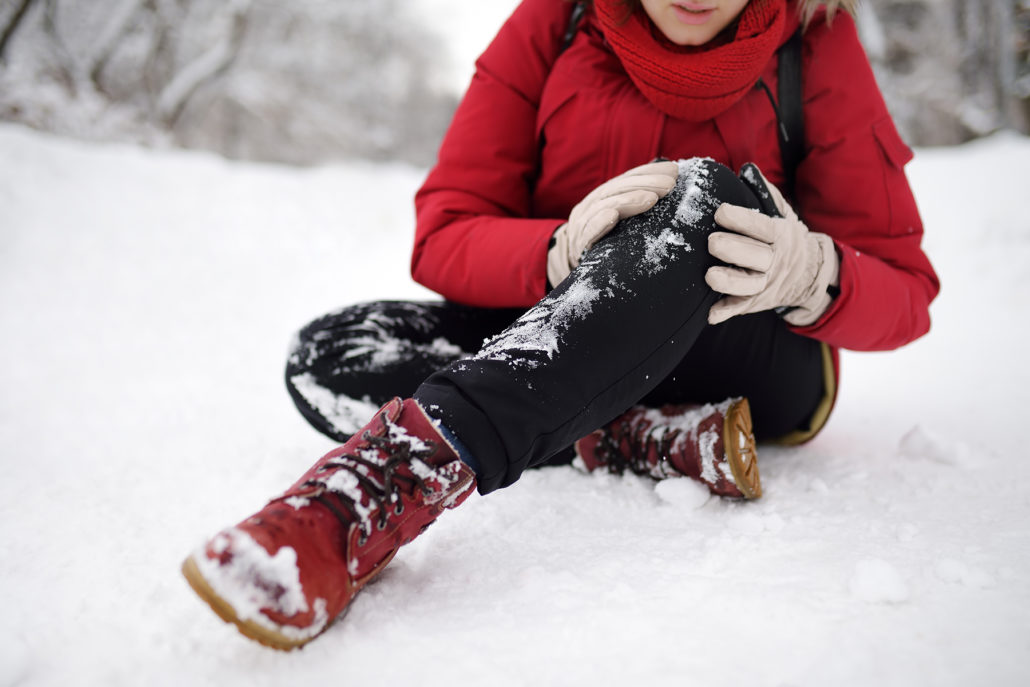Prevent Slip and Fall Due to Ice and Snow Around Your Home
Slips on ice and snow can happen easily. As a homeowner, it’s important to know you could be held liable for the slip and fall of a visitor to your owned or rented property.
With all of this recent snow, not to mention the plunging temperatures, the chances of someone having an accident due to weather conditions increase significantly. Consequently, it’s doubly important that you maintain your steps, porches, and walkways – keeping them clear – to ensure the safety of your visitors and, if you own a rental property, your tenants and their visitors.
As a homeowner, you are responsible for keeping your property, which includes any stairs, walkways, and driveways clear of snow and ice and as safe as possible for anyone who uses them. Before anyone – a courier, delivery person, repair technician, babysitter, or otherwise visits, be aware of potential cold-weather hazards, outdoors and in:
- Ice and snow – shovel and/or sand to keep any walking surfaces clear as per bylaw timeframes and apply salt where needed
- Maintain any unexpected surface or elevation issues such as gaps or surface cracks – fix problems that lie within your property line and/or report issues that exist on municipally-owned property (for instance, uneven sidewalks)
- Apply non-slip mats or coverings on indoor surfaces that become slippery when wet
- Make repairs or replace loose or missing handrails on stairs
- It isn’t just snow and ice – debris such as wet leaves can be slippery and potentially hazardous
- Ensure there is adequate light to illuminate stairs and walkways
Do you know your legal liability?
It’s important to understand that if you may be held liable for trips, slips, and falls if you haven’t provided a reasonable standard of maintenance in keeping your home and property free of potential hazards. Keep this in mind as you plan a party or yard or garage sale.
If you rent your home, the responsibility and, therefore, liability could possibly be shared with your landlord. Who exactly will be held liable will depend on the circumstances of the mishap or accident. If you are a renter with roommates, be sure that your lease agreement clearly states and identifies your responsibilities.
The criteria considered tends to include the following:
- Did the homeowner’s actions conform to acceptable standards of practice?
- Was the hazard or danger foreseeable?
- How easily could the danger have been prevented?
- Did the hazard or danger exist for an unreasonable amount of time?
The most sure-fire way of avoiding liability is prevention. Be diligent in keeping your property free of hazards and regular maintenance is one of the most effective ways to defend yourself against a claim or lawsuit should one occur.
What do you do if there is an accident:
- Of course, you assist the injured person, including to find medical treatment and call an ambulance if necessary in finding medical treatment.
- Document the names and contact information of any witnesses. Be sure to collect and record detailed descriptions of the incident from the victim as well as witnesses.
- Mention any discussions with the claimant to your insurer. DO NOT ADMIT LIABILITY!
- Take pictures and/or video of the area where the incident occurred. If you can, get a photograph of the footwear the injured person was wearing.
- Document the exact events of the incident as well as you can. This may be valuable as you establish a defense for a claim and assist your insurer to analyze the exact cause of the incident.
- Report the incident to your insurer quickly. Provide for them:
- All incident details
- Any details regarding your actions to help avoid the incident.
- Explore and investigate the potential causes of the accident and take the necessary steps to prevent and/or respond more effectively to similar incidents in the future.
Questions about personal liability and accidents around your home? Talk to us!

